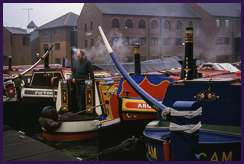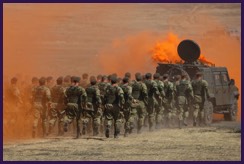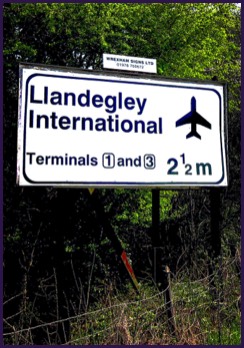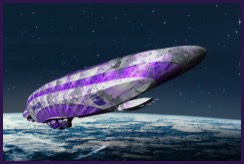
A brief taste
from published books
past web pages
and new stories
They are not in any particular order and provide a mix of subjects and styles.
At times, I might change the selection or add something new.
So, when you have an odd moment, just dip in, read and enjoy.

Photo:
Bombed © Elina Gritsak
Ukraine
A pall of dark smoke, driven by a cordite tainted breeze, scuds beneath sunlit cloud, darkening early morning light. The thump, thump of mortar fire, and rattle of automatic weapons, not far distant, echoes across a new-born wasteland, as I creep out of the sewer and make my way to the pile of brick rubble and scorched timbers that was once my home. My family’s home. I’ve come to salvage what I can, but there’s nothing left to save, bar two dented food tins without labels, which I pocket, and miraculously a child’s coat, red with green patch pockets and collar, untouched by fire, except for a small scorch mark on one sleeve.
The only small joy in my heart is my family, still safe underground. We escaped the soldiers sweeping through, after shelling brought mass destruction to a once thriving township, where harmony mostly reigned, and bickering was more banter than bitterness. All we wanted was to live out our lives. But now we must face aggression in a desperate fleeing of this war-torn state, nothing to take with us but ourselves, and unknown terrors on the way.
I look at a wilderness of smoke wisps and skeletal structures that families like mine have either fled or lie beneath, with only tumbled walls as headstones for their graves. My heart hardens with hatred for the powers that reek such senseless destruction.
There’s a glint in the ashes. A small medallion on a chain. St Christopher. An omen, perhaps, that my family will travel safely, though what has become of its original owner I fear to think. I clasp it in my hand and silently pray. And tears well in my eyes, thinking of my wife, my two children, still so small, one not yet at school. For now, stuck in that vile stink underground awaiting my return, their only hope of escape and salvation their trust in me.
I bring up my hands to hide the tears, but my face is already streaked grey with moistened ash, as I wearily trudge back to lead them out into the light – and the long trek to God knows where.

First day of November and all the saintly mob are up glorying in all your praise. I could vomit. And probably will, after all I had last night. The one night of the year I can truly be myself and enjoy the partying. Not that I’m ever invited to one. Nor that I make a show of myself like some of the scary ones from my side, given their freedom for the evening. All crepe bandages and gore or flimsy floaty apparitions slipping out from behind trees, hovering over the lake or gliding down the grand staircase. Some out to scare, others just to flaunt as much as haunt. Mind you, that Lady Euphemia is quite a sight. If you ignore the blood stains and gash in her neck where she topped herself in shame – found in the Earl’s bed with the Earl’s brother, I’m led to believe. Her diaphanous nightgown leaves little to the imagination. Now that’s a body I could have slavered over in her lifetime, but by the time I was around it was four hundred years or so too late.
No, I’m just out to enjoy the material world for a few hours, mingle with the mortals in as solid a form as I can make myself. Then it’s only once year. You’ve got to make the effort. It’s a bit of a laugh, too. You don’t have to listen to the conversational bores. I just signal to one of my less visible mates to tap them on the shoulder and by the time they look back I’ve just disappeared. Moved on to some merry banter.
It was a friendly bunch I joined for my festivities, this year. They just accepted me as if they’d known me all their lives. Everyone thought I was someone else’s guest, seeing it was a fancy dress do. Some uninspiring outfits, too. An old white sheet with a couple of eyeholes and a struggle for one chap to hold a plate of sausage rolls – which did roll – and a pint glass in his hands without exposing an expanse of hairy legs and dark brown sandals worn over yellow socks. Then there was an Ophelia, she said, that look more like Miss Haversham. The Roman Centurion looked the part though, as he marshalled a gaggle of youngsters away from the beers, wines, and spirits towards the ice cream and confectionery pop-up stall. I was going the other way, of course.
I stopped by the barbecue for an underdone burger and a couple of too crispy pork ribs, before filling my glass for the seventh time. You have to concentrate hard eating this material stuff or any nearby guest sees it passing down through your gullet. Can be a bit alarming to you mere mortals, especially if a bit squeamish and also think it’s the drink giving you apparitions – one of which, of course, I am to you. Even though I and my brethren feel real enough in our other world.
I did my good deed though. Not all of us are evil and ungodly, however we’re painted. I saw this little toddler, only about three, skipping off down to the water’s edge where there is a sharp drop into a deep boat mooring. She was waving a sparkler around her head and not looking where she was going. She tripped over an edging stone of the path, just by the slipway, and I literally flew down to catch her before she hit the surface, dropping her back on to the bank. She was so scared of what had just happened she didn’t think twice of me taking her hand and leading her back to two worried looking parents who’d only just realised she was missing. I know the Lady of the Lake, Marissa, always wanted children, but she wasn’t having that one. Far too early in her life, it wouldn’t be fair.
I heard the little girl’s parents saying how kind I’d been and did anyone know who I was. Nobody near them did, which wasn’t surprising since I hadn’t actually been invited. I strolled away and came across a pretty young thing more my age; well, the age I was before I relinquished material life. She was quite serious in conversation, well read and particularly keen on Shakespeare, but she was also giving me all the right signs for some entertainment away from the gathered crowd. I’d have enjoyed that, but I can’t go there in my spiritual state, it’s not right. I might still be able to take her to an earth-moving moment, but she’d wake up to an empty bed in the early hours. Or rather a pile of damp straw bales, which was where we were heading. I managed to steer her into another little conversation group and quietly disappeared.
It was time to leave. Temptations of the bodily kind were getting too strong. And it was well into the early hours when my saintly peers were due to take over. I was slowly walking away when I overheard the hosts bickering over some Uncle George who, according to one side, had walked off early with a full bottle of whisky. Malt, to boot. While the other host alleged it was Tom and Tim, the twins. Non-identical of course. It was just a euphonism, for the sake of the younger kids, for two thirty-year-old men living together. How they would explain things when the two found a church that would marry them, I don’t know.
I could have put them right, of course, as I tightened my grip around the bottle held close under my tunic. It’s not that we don’t have laws on what we do. And stealing is frowned upon. There’s no death penalty, obviously, so if I’m caught, I’ll just be docked a few years of haunting rights at the wood where I was slain. I’ve had that before, which is why the locals are puzzled why there is a spate of sightings and then nothing for three or four years, before someone spots me again. Those who do something really serious to disturb our equanimity, however, get banished to a young oak tree, this side of the Atlantic, or a red cedar across the pond. No haunting for them for possibly a thousand years and more.
Then I noticed that that girl was sidling up to me again. She asked who I was meant to be, saying I looked as if I’d just stepped of the stage from A Tale of Two Cities. Which wasn’t a million miles out, though I’m definitely no Sydney Carton. I arrived over here long before that was written.
I was enjoying an aristocratic life in France when the Revolution broke out, and it was only when I heard I was on the list for the guillotine that I decided to flee. It was a hazardous route I took, dressed in peasant’s clothes, but one of the chateau’s servants, all of whom our household treated well, knew of a boatmen on the Bretagne coast who could sail me over to England. It was a small sailing boat and I wondered if it could survive the open sea, but what other choice did I have? I felt sad as I looked back at the blush-hued sand and rocks of my native country and was overwhelmed with nausea as the boat pitched and yawed over the rough sea, eventually landing at a small beach in Cornwall.
My Aunt Mirabelle had told me of the sweet sandy beaches I would find. She was too old to travel, now, and thought if they wanted her head that was alright. Her life was as good as over anyway and it might be a relief from the continual pain she suffered. What I found was far from sweet. The east wind had rolled a mountain of seaweed on to the sands, more than waist high and I had to plough through the stench of rotting marine vegetation to reach a short path up to a field and across to a spinney. There I was to await another contact to take me up to St. Austell.
I lay nervously, keeping low in the undergrowth, until I heard the stealthy tread of a big man in heavy boots. I stood up sharply in relief. That was a mistake. It wasn’t my contact, but a gamekeeper with a shotgun at his shoulder. Thinking I was a poacher, his instinct was to fire a warning shot, but my sudden movement put me in his line of fire and my right eye was blown out and my brain peppered with shot. There was nothing he could do to save me, not that he really tried, and after two hours of extreme pain I joined the land of the unliving. That’s why I wear a patch over my eye (kindly placed there by the undertaker before my pauper’s burial) and remain in peasant clothing.
I told the party girl to think of me as a pirate, off to enjoy my spoils on foreign shores, bid her goodnight and hastened away to an unmarked spot in a quiet cemetery, there to enjoy one warming spirit delighting another, as I sank back to another year’s earth-locked rest. And an addition to the puzzle of finding so many modern bottles about my rotting coffin if they ever dig me up for a new motorway or rail line.

The day had been autumnal and sunny bright, though a little cool, tempting me down to Elsie May, the narrowboat I’d restored over the summer. A quiet hour or two gliding the waterways beckoned me, before winter set in. When I first found her, she was an old wreck of a hull from early Victorian times that showed signs of a small fire on one side, maybe from a one-time cargo of industrial cinders. It had obviously lain a wreck for years, moored next to pastureland, and I knew instinctively she had tales to tell.
Tracing the owner was a story in itself, as I was passed from one family to another, from a young girl in the neighbouring village, through her parents, both townies, to a great uncle named Bertram, who lived in a care home, ten miles away. He was the son of one of the last working bargees, whose family lived and slept on Elsie May before she was abandoned, and he had inherited what to him was a worthless pile of rotting timbers. He had been politely asked, first, by the adjacent landowner, then cajoled with promised help and finally threatened to remove the hulk from the waterway, but he never had the means. So, as long as it caused no interference to waterway users, it remained embedded and almost forgotten.
Now far into his nineties, Bertram told me his forebears mostly carried limestone and coals, occasionally Staffordshire pottery, back and forth across the country, until ending their days on shorter Black Country runs, barely scraping a living. The narrow boat had been their life, their home, their living, for over sixty years, and for his grandparents and great grandparents before them. In the latter days, Elsie May provided just enough to get by, he said, while he was lent out, as he put it, to an aunt on weekdays, so he could get proper schooling. He had to fetch and carry, out of school hours, scrub her floors, and keep the fire glowing, in return for one cooked meal a day. At weekends he was back on the boat, doing his bit loading, unloading, and working the locks, to give his mum a break. Back in his grandfather’s day, his job would have been to lead the horse, but a diesel engine had been fitted by the time he was born. In their last years, if they didn’t work all seven days of a week, he was told, they would go under, which the Elsie May eventually did. Abandoned, after running aground, already damaged by a fire from a spilt oil lamp, further fuelled by coal dust still clinging to the inside of the hull.
Bertram told me he was loathe to let her go. She was part of the family, but his earlier hopes of someone in the family refloating her had long since gone. He’d had no children of his own and Elsie May was being left between a niece, Sarah, and a nephew, John, neither of whom expressed any interest in the canals. Well, he couldn’t let their inheritance go for nothing, but he knew he could never salvage her, not now he’d had to sell his house to pay for care in his last days. And not too many days was it going to be, he said, the doctor having told him that only the week before. I was about to make my offer, when his eyes lit up and he said that in his heart he’d rather I had her for nothing than she be forgotten for ever, but he couldn’t leave this world without something for Sarah and John. If I could give them a couple of hundred pounds apiece – without telling the care people who’d take the money for themselves, he thought – Elsie May was mine.
I smiled and told him I would do better than that. He had no idea of the value of even a bare hull, in modern times. I gave the two would be inheritors a thousand apiece, and that was still mean, even knowing that it would cost thousands to recover the vessel and have her brought to a boatyard near me, where I’d secured a mooring and had been promised help in the restoration. Pumped out and dry, she was in better condition than expected, the fire damage slight and the real reason she’d been stuck in the bankside was that it had collapsed around her when she hit it, so she was firmly wedged. So, restoring her was just many days of hard labour, bringing her back to her glory as a working boat, which I showed at some late summer events. Kids loved her, jumping in and out of the little cabin and the long hold, running back and forth along its length – sometimes at the horror of their parents, fearing they might fall into the canal – and learning about the old days before railways took over the transport of high-volume heavy goods. But the parents’ perceived horrors were nothing to what came later.
I’d looked up as much as I could, through both the local library and internet searches, and combined with what I’d been told by Bertram and the remaining family, I traced Elsie May’s history back through five generations of ownership. Always a heavy haulage working boat, originally horse drawn, she once had a sister, Daphne – a butty boat she used to tow, doubling the load that could be carried, that had to be sold when times became hard – and a succession of sturdy horses, who could pull up to fifty times their own weight on water, heaved her through the turn of centuries, before the diesel was fitted. The last horse to be retired to green fields was Maisie, a skewbald cob. Bertram showed me a photo, slightly out of focus and black and white. The fact that Elsie May had had such a long working life was a testament to her builder and I admired the original craftsmanship when I restored her with less able hands.
It was on that last outing before winter that I noticed something strange about Elsie May. She normally slipped along the water at her leisurely pace, with little effort needed on the tiller. But this time I felt an extra weight on the steering as if she wasn’t happy the way I was going. I thought, at first, it might be the wind that was blowing up, but that had never been a problem before and a quick inspection around her hull showed nothing that might have caught on to her. Reaching a canal junction, I decided to manoeuvre her around and head back to her mooring, so I could inspect her more closely and she immediately seemed to settle, with a lightness on the tiller making me wonder if she had a mind of her own.
And it seems she did. As we reached home, I cut the diesel to let her drift slowly to a stop. But she didn’t slow, the tiller wouldn’t steer her, and she kept a steady, undriven pace towards the tunnel basin, half-a-mile away. Keeping mid channel, I had no way of leaving and pulling her to the bank and we soon reached the basin in front of the caverns, where three tunnels started, each through old mine workings to other canals, except for one, now bricked up, that led to cavernous excavations under the limestone hill above.
Elsie May drove forward directly towards the bricked-up tunnel. I prepared to jump and swim away to the narrow towpath leading to one of the open tunnels, but as the bow met the solid wall, it passed smoothly through. Half paralysed in trauma, I flinched and ducked down as the cabin passed into the short dark tunnel beyond, staring in disbelief at the hewn rocks above my head, glistening with damp from a low light beyond, to which I was headed. As the tunnel curved to my right, I could see an eery blue-green glow, emanating from just ahead. It came from a huge cavern of cathedral size, with many more tunnel entrances breeching its walls. I turned to look at where I had emerged into the vast, still water basin only to see a fall of rock across its entrance. How could I have been brought through that? It certainly blocked any way back out.
If I could restart the diesel, I thought, I could choose another tunnel and see where it takes me. But would that be out to an open canal or further into a maze of canal branches that wend in and out of old mineworkings? Was I entombed in a network of waterways that never saw see the light of day? I would have to take my chance.
The carefully serviced diesel engine that reliably purrs its way, from lock to lock, in the restored glory of Elsie May, now refused to start, as the boat gently slowed to a halt in the centre of the cavern. Then slowly she spun on her axis to face a tunnel from which light was brightening to reveal another narrowboat, with two burly men, one each side, legging it through, backs laid to a heavy plank, feet firmly planting steps along the curved walls of the tunnel.
As she continues to spin, another dim lit tunnel lies ahead, wider this time, with a narrow towpath that loops around to an adjacent tunnel which is still dark. From where the light is brightening a skewbald cob steps out, shakes its head, whinnies, and pauses, as another boat slips quietly into the cavern. From the next tunnel emerges a steam driven boat and from three more entrances, gaily painted rose and castle boats appear, powered by diesel, steam, and another horse, as black as jet, and many more behind them all. All working boats, not pleasure cruisers. All showing the scars of loading and unloading rough cargoes, but all immaculately kept and decked out with pots and baskets of flowers that you would expect in summer, not these autumn days. I was so absorbed with all the movement around me, as I became hemmed in ever closer by the assembly, with work-clothed folk stepping between each other’s boats as they jostled close together, that it was a shock when I looked forward again to see a gentleman and lady standing at the bow of Elsie May.
Hails and welcomes are passed between all the assembled folk and a special cheer raised to Elsie May. The two folk from my bow walk easily along the narrow hull sides to the cabin, with no hesitation in their gait, whereas I am usually much less steady. Dressed in rough black trousers, thick white cotton shirt, unbuttoned plain maroon waistcoat, and checked cloth cap, the man introduces himself as Ernest, and his wife, in a well-worn deep blue dress and crocheted green shawl, as Daisy. They say little other than to thank me for bringing them home. With a touch of the cap from Ernest, they then step out across the boats, one, by one until they reach the narrowboat pulled by the skewbald cob, climb aboard, and are hugged by its owners and ushered into the cabin.
Gradually, the boats begin to pull away from Elsie May, and as the skewbald cob pulls its charge back into a tunnel I read the name Daphne, painted in black shadowed gold script on its prow. Soon I am left alone in the cavern, totally bemused. There’s not a ripple in the water, not a draught of air to help me judge my way out. It’s then that a flurry of bats swoops down from high above and flutter and flap all around me, forcing me to cower in the cabin entrance until they stream out through one of the tunnels. I try the engine again, which immediately bursts into life, allowing me to move forward into the same tunnel, following the lead of the bats. It’s surely a way to open air, I decide, but after about a hundred yards my heart drops, as I see them fly upwards into a ventilation shaft. And I am left the with blackness fore and aft.
With little option but to keep going, within the dimness of the tunnel, and just the one light I have sending in a pencil beam forward, I pass two branches I daren’t take, until after a mile or so by my reckoning I see the faint light of an archway. And the hope of escape ahead.
You can imagine the relief I felt as I slipped out into bright moonlight, though not knowing how far it was into the night as my watch had stopped when I first disappeared, impossibly, through that bricked-up entrance into the labyrinth of old mine workings. I travelled a little further, far enough I hoped, not to be drawn back in and moored by the bank in the shelter of woodland, from which I could hear the occasional hoot of an owl and the bark of a fox. Sleep didn’t come easily, but it was badly needed as I felt drained deep from my unnerving experience.
There was a frost on the towpath when I awoke to birdsong and looked out to see a pale sun highlighting pearl dropped spider webs in the hedgerow. But no woodland, just an open meadow and a dip into the bank. Overnight, Elsie May had taken me back to the spot where I first found her, though this time she was not grounded, but gently rocked as a pleasure craft passed by, its navigator wearing a gilet under his heavy coat. He gave me a friendly wave and hailed me with a cheery, ‘Only the first day of November and you’d think winter was already here.’
(The idea for this story was very loosely based on the Wren's Nest tunnels and canals, Dudley, Staffordshire, where in its Castle Basin there is indeed a blocked off tunnel that used to lead into old limestone mineworkings.)

The knock on the door is light, hesitant. When I walk down the hallway, I see no shadow in the round, frosted glass panel at the top. But I open it, still, in case someone just dropped off a parcel for me. Not that I am expecting one. But it’s no package on my doorstep. It’s a girl about five or six, tightly curled hair, fairly plain blue dress and scuffed and mud-stained brown school shoes.
Her dark eyes are saucer like and watery as she gazes up into mine, a tremble on her lips.
‘I’m Louise. Mam sent me. You my Poppy?’
I am stunned. Memories flooding back. How, in my family, grandfathers where always called Poppy, dads just Pop. I remember asking once, ‘Why?’ My grandpop never smelt like no flower unless you count hops. It just is, was all the answer I got.
I often wondered what I’d be like as a kid’s Poppy, but we had the troubles and May, my daughter, had to leave. For her safety more than mine. Only thirteen then, but too well built and attracting the Master’s attention. We told him she’d drowned visiting a cousin. Master just huffed. Reduced my pay for not having a family to feed, no more. Especially as my Poppy had gone a month earlier. He’d lived with us after Nan keeled over in the fields and the lash finished her, when she wouldn’t, couldn’t, get back up. As for May, she’d been my joy, though I began to believe, myself, that she had drowned. I had heard no more of her. That was hard. Especially when her Mam passed away, too, with the fever.
Then the big turnaround. Troubles over, Master gone and I a free man. And a job that pays for this house, not much more than a shack, but my home. Just me and memories.
I look out across the dirt track, expecting some trick. Expecting to be rushed and bundled back in, to be robbed or worse. But all’s clear. I gently shuffle this little Louise inside; shut the door. She holds a crumpled sheet of notepaper up to me. I take it. Unfold it. Read the words written in shaky hand. “Joe. Dad. I tried to come back but can’t make it. I’m dying. Got so close, too. Louise is your granddaughter. See she is safe, like you saw me.” There’s an address, not five-mile away. Louise had walked it from there. I give her juice.
I’ll find her, my May. Though, with darkness in my heart, I fear it might be too late. And I feel ready to collapse, recalling all the tragedy my family has undergone. Only, one bright spark before me now gives me strength. Hope. A future. Slowly, I stoop down and take her tiny hands in my work gnarled fingers. Her face turns up to mine, not knowing whether to smile, until I say, ‘Yes, Louise, I’m your Poppy.’

Why?
No more questions, Sammy.
But you told me to ask questions. At school. Whenever I didn’t understand, whenever I wanted to know more.
Those are different questions. About things you need to know now. Some things you don’t want to know until you can understand them. If anyone can understand them.
But why are we leaving? Why aren’t we saying goodbye? I’ll lose my friends.
It is not safe here. For me, for Mama or especially for you. The soldiers are coming. Soon.
But soldiers are meant protect us. School says so.
They’re not our soldiers that are coming. Not good soldiers. Thieving soldiers wanting our land. That don’t believe in God, as we do.
But they might not hurt us. We are good people. Why would they want to?
Because they are greedy. Because they want everyone to be afraid of them. Fear is their power.
But I don’t want to go. I won’t know anyone. Can’t I ask my friends to come too?
No! Tell no one. Not all your friends can be trusted. Or not their families.
But …
Enough Sammy! We must make haste. Be ready for your uncle, who will take us across the border.
Where are we going?
I cannot say. Not until we are safe.
But how do you know we won’t be safe here?
I remember from before. Before you were born. Before we were sent here.
Perhaps there will be some good soldiers, too. Some who will keep us safe.
Not these soldiers. I know these soldiers. Now waste no more time. We must have you ready.
But why do you bandage my chest so tight? Why do you cut off my hair, so short? Make me look small, like a very little boy.
It is safer that you look too young to be taken away. Older boys are taken for more soldiers when they find them.
But …
Samantha it is best. Hurry. If they see you’re a girl, a twelve-year-old, they will do terrible things to you.
What kind of things?
Believe me Sammy, that’s something you really don’t want to know.

I look up at the window of the smallest bedroom, as I always do when I pull onto the drive. He’s been there five years now. Sun faded straw-coloured nylon fur, brown glass eyes, rounded ears, and paws against the window. Waiting for Sam.
Five years without hugs; five without a ride in the wooden trolley that holds the coloured cubes of alphabet bricks; five since he was last tucked up next to Sam, while I read the last pages of a bedtime story. Always there, perched on the windowsill of Sam’s bedroom staring out, so that Sam will see him when he comes home. If he comes home. Behind him, Sam’s bed, too small for him now; Sam’s toys, too babyish for a nine-year-old; and the mobile I made of spaceships and stars still hanging beneath the rusting drawing pin that left a dent in my thumb, when I pressed it home.
How Sam came to open the front door, I’ll never know. Perhaps the latch was not properly home. Laura blamed me. I blamed Laura. But in the end that didn’t matter. He’d wandered out into the front garden, where he was never allowed out alone. He’d taken his little plastic tricycle. That was still there. The first I knew anything was when the foreman came down to the shop floor, at a trot. Told me there was a panicking Laura on the phone, in the office. ‘He was right by me. Then he wasn’t,’ she said. ‘I was on a call to my sister and I heard the front door bang. I called him and called him and ran out to the street. He was nowhere!’
Then the recriminations. I must have left the door open when I went to work. At seven-thirty; four hours before. But the postman had been since. With a parcel. She’d have noticed and she swears she shut it after that. Five minutes tops, he could have been out there on his own. He could have run out and been knocked down. It’s a very busy road. I almost wish he had. Then at least we would have known. Had closure. Or even mended him. It’s the not knowing that tears apart your heart. You can’t explain how. You can’t explain why. You can’t grieve. And now, it’s too hard even to hope.
No more the soft little hand in mind. No more the blue saucer eyes, staring in wonderment at the zoo. No more feeding the ducks; riding high on my shoulders; running down the sand, shrieking, as cold sea covered his toes. No more little tantrums, nor clinging to Laura, eyes wet with tears, having grazed his knee. No messy finger-painted paper card on Mother’s Day. And no more Christmases. We each left a present under the tree, the first year. Just in hope, though not really believing. They’re in his bedroom, now. Still unopened.
We’re back together, now, Laura and me. We did split. And the rift hasn’t fully healed, but we agreed we must both be here for his return. The police were very good. But proved useless. The whole neighbourhood searched together; every shed, every bin, every bush, the coppice in the park. The boot of every car. Including mine. No trace. No suspicious sightings. It was though he never existed. All we have left is his beloved teddy. Sitting. Waiting. And every night Laura and I slowly climb the stairs and cross that little room to join him, in a brief vigil at the window. Holding hands, her head on my shoulder, tears in our eyes.

Unlike my own laboured tread, other tiny feet scamper through the leaf litter of late autumn, sparks of reflection flashing from tiny eyes, as pointed snouts burrow in and out of woodland litter, soft fur brushing fallen branches, driving safe paths through tangled undergrowth, away from owl’s eyes. The woodland is alive and well. Skeletal branches weave pale shadows along its boundaries across the lightly frosted field beside it, as I leave the wood’s cover and wearily trudge across open land, boot heels digging into soft ploughed stubble. Mist rolls across the valley to settle over slow ripples of the meandering river’s ox bow below me, though that is not where I’m heading. Instead, I pace across to a damp grassy hummock, beside an age-old dew pond, on which I sit in solitude. Eyes downcast in sorrow, I see only the moon reflected, pale in mirror smooth water. A moon that above shines full, within a watery halo, through broken, scudding clouds. Just as on that first night when we walked back from the barn dance, skipping gay steps, the music still in our ears, though fiddle and bow had long been packed away. But that was an autumn in storybook times. Your soft peach skin beneath my calloused labourer’s hands as velvety to the touch as moss upon a rock. The sheerness of your summer dress revealing a beauty I’d never seen in your coarse and hardy workaday clothes, chosen for your farming tasks. But even then, I’d been smitten by the laughter in your eyes, a smile that haunted my every dream. And by this same pond, that night, you became mine and stayed mine through many years, pulling me through my hardest days, as I consoled you through yours. Watching children grow and eventually go, choosing their own paths, on which we smiled with pride. Then sadness when your time came before mine and I wept a man’s tears, enough to fill a pond of my own, before all the memories returned of those wondrous days we spent together, farming our own acres. But now my bones grow old, my muscles weak and others tend the farmlands; yet I can still bring back the magic of that first moment here. And when I raise my head, I see not just the radiance of a haloed moon, but the bright aura of one whose love never faltered, who stole my heart in exchange for hers. Though now, with so much time passed, I know that this will be the last time I venture back. For my bell tolls insistently, a steady tone that marks those ending days, when such beautiful memories become moon halo pale. And soon, all light will be extinguished. Both of us no more.

I had arrived at Llandegley International Airport to board a Lanfihangel Airways flight to Sables-d'Olonne-Talmont. I was pushing it for time, having left home late, as usual, and then been stuck behind a huge hay lorry for countless miles down the A44 – which itself had got temporarily stuck, sidling past a heavily laden Gore Quarry truck, easing its way through the narrow Pembridge High Street, by the New Inn. I’d just missed the shuttle bus from the car park and had to trot down to the check-in bay at Terminal 3, towing one large case and carrying a cabin bag; and nearly tripping over the feet of a horde of arrivals heading for their own cars, cars picking them up or queuing for the line of taxis. Why did I pick to go on a Bank Holiday weekend?
One thing about being late, the check-in queue had shrunk to a half-dozen or so impatient looking travellers, all looking lost. Not surprising in this little Welsh stronghold, with its predominantly blue-grey slate décor, relieved only by a few large yellow and green daffodil and bright red dragon wall sculptures. Even the check-in desks had counter tops in solid Welsh slate and the mood music was either Katherine Jenkins or male voice choirs. Signs stood out proud in white welsh script, with English translations subdued to a barely legible light grey.
I looked nervously at my watch. Lanfihangel Airways were known for punctuality and that included closing its check-in dead on time, waiting queue or not – and I was apparently last in line, with an excitable Italian in front of me, gesticulating and shouting: and only two minutes to go. As he finally moved away, I slapped down my passport and ticket, to receive a stern glare from the girl in green uniform, with white piping and red collar, who then glanced at the clock. I held my breath and pleaded with my eyes as she looked back and took pity on me. I then prayed I reached security in time and audibly sighed with relief as I was eventually waved down to boarding.
Once in my seat I was ready to relax and dream ahead of those long stretches of egg-timer sand along the Atlantic coast, at Les Sables-d'Olonne. Days of sunshine, of lazing, of browsing the books at the Librairie Les Fables d’Ollonne (not that my French was up to much actual reading) and sauntering around narrow streets and alleyways, away from the main tourist spots. But that was not to be.
Waiting for take-off, I was reading a leaflet thrust at me as I hurried into Terminal 3 and pushed into the open side pocket of my jacket. It was a protest against the new Terminal 5 and runway extension planned for British Airways expansion, at the expense of acres of productive farmland and noise pollution over the Llandrindod Wells to Knighton flight path. Just not on, according to the local opposition, who were now beginning to rue their earlier political persistence to bring extra commercialism to this rural spot in central Wales. They had enjoyed the sight of Terminal 1 being opened by the Duke of Wales, but Terminal 3 had been seen as the end point. What’s more, the increased passenger footfall would mean widening the meandering A44 into a fast, dual carriageway, feeder-road – with even a section of A44(M) motorway on the plans. I signed the petition slip ready to post when I got back. Which nearly proved to be the same day.
No sooner had we taken to the air, and I was looking down over the sparkling waters overflowing the dams of the Elan Valley and heading towards Llyn Brianne, than we started to circle back. The pilot announced, in a somewhat despondent tone, that there had been a wildcat strike of French Air Traffic Controllers and our flight was duly cancelled. We were on our way back down to the land of our fathers. And that wasn’t the end of our troubles.
We had had been stacked waiting for a slot in the busy air traffic, I presumed, as the plane circled the same scenery for the fifth time. I asked one of the cabin crew what was happening and she smiled her don’t worry sir smile, and whispered that she shouldn’t really tell me, but the pilot can’t find the airport again. I looked out the window by my seat and peered down. All I could see were a couple or so farm buildings and a long, straight, strip of dark ploughed earth, where Dai Evans had been practising for a ploughing competition.
Our flight was diverted, which is how I ended up sitting in a comfortable lounge at Cardiff Airport, at Rhoose, having rebooked on a flight to Reus in Spain. That flight went OK, but when I got back, I couldn’t find a Lanfihangel Airways desk to ask about flights back to Llandegley, so I asked around. Well, a couple had heard of the town, but did not know of even a strip of land flat enough for a plane to land. No one else seemed to have heard of it, at all.
Except, that is, for a youngish chap from New Radnor, who’d been on the same flight. He said he could offer me a lift. He had his own small plane parked at Cardiff and said he’d be flying it back there the next day. That suited me. It is a difficult place to find, he told me, though it’s well signposted from Crossgates, and even some of the airline pilots get confused. You’ve got to be in the right frame of mind, when you’re landing, it’s not that clearly visible from the air and there’s not a very long runway, so you could easily end up in a field of sheep, if you lose concentration.
I don’t know why that is. I can picture it clearly in my mind and I’ve still got the protest leaflet about Terminal 5 in my pocket. Just seems there’s no address for where to send the petition slip.
Anyway, I did get safely home.
NB: Note to sceptics. Some say that Llandegley International Airport started as a political comment, others just as a spoof, and it’s true a lot of folk never find it, but let your inner mind take you there and you can catch a flight to anywhere in the world. I know. I’ve been.

Hello, this is Margaret here, but I can’t answer the phone at the moment. According to the doctor, I died last night. But you know what I think of him. I never take any notice. Doesn’t know a nosebleed from a sprained ankle. Still, I do feel a bit stiff this morning, so you will have to leave a message and I’ll call you back when the spirit rises. Might not be until after the funeral, mind, if the doctor is right.
I do hope not too many people turn up. I hate noisy gatherings, full of fake platitudes from little known friends and relatives I would never recognise in the street. But you’re invited, of course. Because you’ve taken the trouble to call me. Unless you’re that infernal insurance man, trying to sell me some fancy funeral plan. In which case, you’re probably a bit too late and I wouldn’t want to waste your time. Or have you tapping the shoulders of all the mourners, touting for business.
Patsy – that’s my daughter, you know – was all weepy this morning. Not like her. She usually breezes in full of false cheeriness. Tells me not to moan about this pain in my back and the fall I had last week. Just old age, I said: tripped over my own feet. Of course; I’ve got years in me yet, she said. And I trust her before any doctor. Another oddity, I’m lying flat on my back, head on a plumped-up pillow and I’ve got my teeth in. I never sleep in my dentures; they go in the tumbler on the dressing table. And my hair’s been combed. I don’t remember that. Has that carer woman dropped by early?
Can’t stand that dreary Deirdre girl. That’s my name for her. I can’t pronounce whatever she’s really called. Prissies about with her vinyl gloves and damp flannel, hauls me to the commode without any respect. So, I don’t do anything, sometimes – until I’m back in my bed and she’s just about to leave. She doesn’t say much, but I see her mouth moving and read her lips. Those words don’t come from her little book of English grammar.
Now who’s that at the bedroom door? Not family. Nor a neighbour. A right soulful old soul in his dark suit and black overcoat. Obviously not stopping long or he would have taken it off. He’s whispering something. Can’t quite hear. Sounds like he wants to take me out. Over my dead body, the silly old fool. I don’t need a man anymore. The last two were trouble enough.
But you don’t want me rambling on about all my woes. Just leave me a message and I’ll be in touch when I can. Let the spirit be with you. Have a good day. And don’t forget to leave your phone number.
Seems, now, they’re wheeling me off to a parlour. I hope it’s the ice cream one. I just fancy a honeycomb cone.

It took five days to get a reply from Susan. Minimum. Even at the speed of light. And giving her time to actually send one. She was over on the man-made planet Urmaxion 40, an ovoid interplanetary staging point orbiting Proxima Centauri that’s used as a base for deep space exploration and military surveillance across the galaxy. It took twenty-eight years to build and it takes seventeen years to get there, even using the latest ultra-speed cruisers. I’m on one now.
It all started over twenty years ago. I’d just turned eighteen and was feeling lonely. Susan became my space buddy on FISC, the Friends In Space Cluster. All my mates had higher grades than me, in their GEMS FA – the Global Education and Mentoring System Final Assessment. All but two had transferred to GEMS HA – the High Achievement programmes in sciences, business and historical arts. Future highflyers, all of them, I thought at the time, but only one made it to the top. He proved to be useful, though, because his uncle was the top boffin at the largest manufacturer of interplanetary cruisers. That’s how I got my place aboard one.
Phil was a true boffin, like his uncle, and kept in touch throughout our disparate career paths. When his uncle needed a good second grade propulsions engineer on the maiden flight of a new super cruiser – an IGHSCS 3500 Class, Xenon-Cobalt Fusion Powered monster designed for 20-year non stop trajectories – Phil had a word in his uncle’s ear and I was taken on. And guess where it was headed? You got it: Urmaxion 40. My ticket to see Susan.
Yeah, I had taken the plunge. After three years of messaging and highly personal chitchat, I knew we had to meet up. Now that’s not like buzzing the girl down the street and fixing a date. She was seventeen years away and no place half way to share a film and popcorn. No just hopping on an aerial bus and tripping across country. And no making a quick, surprise visit, even though I knew her address. Yet, a surprise visit it was going to be. It had to be. You can’t just message a girl and say I’m coming over and expect her to wait the seventeen years it takes to get there. So I worked out a strategy to keep us both happy, I hoped.
From all her messages, I knew Susan was single and had had a couple of brief relationships that were never expected to be permanent. I knew the things she liked: music, theatre (she was an amateur actress) and powerful bikes. I learnt that she lived in her own apartment, in a semi-rural township that was self-sufficient from its own, surrounding, agricultural land and the chemical air generators that supplemented the natural biological atmosphere, produced from woodland tracts and beneficial algae filled lakes. She kept trim running around one of the local lakes and the images she had sent me confirmed how fit she was and how fit she looked. No one on Earth appealed to me in the way Susan Parminster did.
She seemed to be attracted to me, too. Was even quite flattering about my physique (I worked out regularly at a local gym), so I remained hopeful that our FISC friendship would one day become more physical than a keyboard and screen romance. I certainly wanted something more than cybersex, not that either of us had suggested that. We’d kept within the guidelines of FISC, which recommended maintaining a discreet distance in our online activity (not that there was much option when you’re over forty trillion kilometres apart).
For those of you that don’t know, FISC was originally set up to enable a cluster of small populations working on distant space projects to maintain friendship contacts back home. As space exploration grew, so did FISC and now there are thousands and thousands of space buddies in hundreds of individual friendship clusters. I joined partly out a selfish whim to replace the friendships I was losing with my peers, who where moving out to GEMS HA institutions, but I also felt for those brave souls that had emigrated to distant locations, from which they were not likely to return, certainly not in their more youthful years. Now, of course, many of them don’t want to, whole families having grown up on some tin satellite or other; or in one of the vast habitation domes on cultured lumps of planetoid rock that wander about the galaxy. Even deep into the third millennia, they are the only ‘extra-terrestrials’ you’ll come across.
I was not going to be the first to bridge the gap, I was sure, but that didn’t mean I wasn’t just as determined. I was already working on the idea when Phil’s uncle came up trumps. There was only one snag. I knew I’d be welcome when I started the journey, but seventeen years, c’mon, that’s one hell of a journey and how would we both feel by the time I arrived. So I said nothing to Susan. I let her think I was plodding along as a second grade propulsions engineer working the small ships on Round the Moon cruises, so popular as short term holidays. You launch out of Earth’s atmosphere day one, get a live planetarium style presentation, day two, flip around the dark side and then land next to a Moondome in the sunlight. Next day, you get to jump around in low gravity recreation and choose between the Starlight Cabaret and tacky Green Cheese Diner for the evening.
The following morning you go on a moon trek, viewing acres of dry dust as you bump through a few craters, like a cheap fairground ride, and finally gather your goodies from the gift shop to take back home. Return journey is a bit of an anti-climax (though there’s on board karaoke for those who have seen all the videos on offer), except for a hover peep at one of the five space stations in Earth orbit. Not that you can see much more than a giant metal capsule with a glint of sun, if it’s not in the Earth’s shadow – or a vague shape and a few pinpoints of light, if it is.
To Susan, that was my working life and hers was no daydream job either. She was a data supervisor for a minerals extraction company, in charge of a small team of inputters and analysts, so rated middle management. And she had a similar education profile to me. That seemed good: certainly comforting that she was not a highflying executive, out of my league. Things between us were steady, with online comms once or twice a week, more if either of us got around to doing something interesting. Always hearing about it five or six days after the event, of course. Not quite a live commentary on our lives, but close. So to keep it this way I maintained my reply interval to Earth measures, during the voyage, even though I received her messages ever quicker as I passed through the comms zones closer and closer to her home.
Five years into the journey, however, I thought I’d blown it. I’d messaged an account of a theatre visit I said I’d been to, though I actually watched the play on video, in the ship. No reply. No Comment. Nothing for over six weeks. My heart sank. I was despondent and irritable, after all I had planned, but at least I had a steady job for another twelve years or more, I reckoned. It wasn’t all bad. Maybe I’d find a soul mate on board?
Then came a verbose apology. She had suffered a virus and only just recovered, she said. She’d got all my messages, though, and everything quickly returned to our normal messaging routine. I still did wonder if that was all it was or if she’d found some other buddy closer to her home, but that didn’t last long and somehow our online relationship remained strong, still more than hopeful, as the super cruiser docked, seventeen years and three days from departure. In the final couple of years, I did drop some veiled hints about how great it would be if we could walk out together in the same place, but I’d never disclosed my secret plan. Now. This was it. Surprise time.
I had three weeks leave to decide if I was to re-join the ship, stay on Urmaxion 40 or find another route home. With Susan? Without her? Well the next few days should provide the answer to that.
I caught a tunnel train to her hometown and came up to street level. I was surprised how Earthlike the general layout of streets and buildings looked. The chance to be really radical and the planners had just thrown up the old faithfuls: perhaps they were homesick when they populated this artificial world. One advantage, though, it meant getting around should be quite easy. I debated whether to message Susan to say where I was, but decided I’d take a look at her place first. Get a feel for what was going on in the locality. I wandered over to a taxi bay, climbed in a hover capsule and tapped in Susan’s address. Offered the choice of direct or visitor’s route, I punched in the latter. Might as well have a short, voice guide tour on the way and see some of the sights.
The direct route would have whisked me to Susan’s door in five minutes flat, but the scenic alternative took twenty minutes, allowing me to gather my thoughts. Would this sudden appearance be too much? What would I discover that she hadn’t told me? Would it all be too intrusive? It’s not often someone turns up on your doorstep from trillions of miles away, unannounced. I sent her a message, brief and to the point. I hadn’t been entirely honest in the last seventeen years. I had been travelling towards her all the time. I was in her hometown. Would she be free to see me? There was no reply. She might be at work or out somewhere – or, worse, with someone. Someone who doesn’t know about me and whom she doesn’t want me to know about.
The taxi pulled up and flashed my arrival on its screen. I looked out: something was wrong. This long building with its single entrance didn’t look like any other apartment block we had passed. All flat grey walls and no windows, just a massive row of air conditioning vents along the roofline. I stepped out and checked the name on the building. A large plastic nameplate proclaimed “The Farmhurst Building.” That’s the one, I thought, so I looked for entry buttons. There was only one, beneath which the words “Information” and “press for service” lit up as I approached. What a welcome, after seventeen years travelling. I pressed and heard two beeps and a synthesised voice politely ask ‘Can I help you. Sir?’ Something must have been seeing me or scanning me from somewhere, but looking around I saw nothing.
I explained I wanted to see Susan, gave her apartment number and waited. Two more beeps. ‘All deliveries for Susan Parminster should be placed in the bay on your right, sir. A receipt will be issued once it has been scanned as acceptable.’ A panel had opened next to me revealing a large cubic bay with a base of rollers. It was big, but not man sized, so I pressed the button again. Beep, beep, ‘Place your delivery in the bay, please, sir.’ In the hope that some AI was at work, if not a real person, I explained that it was me that wanted entry, not some package. The beeps and ‘Scan your pass on the red bar on the left, please, sir.’
I told this disembodied voice I had no pass. Four beeps this time. ‘Wait there, sir and hold your palm on the red bar for at least five seconds.’ A short silence. No beeps. ‘You are unknown sir. You are not of Urmaxion origin. Entry disallowed. A pass may be applied for at Farmhurst Incorporated. Good day, sir.’ I screamed at the wall in front of me that I’d travelled all the way from Earth and had no intention of going away without seeing someone. Maybe it was the pitch of my voice or me thumping the information button repeatedly, but it did the trick. Beep, beep. ‘Security will be with you in a moment, sir,’ was annunciated in an infuriatingly even monotone.
By now the hover taxi had taken the huff and, because I had ignored it and not tapped wait on its screen, it had sidled off to the nearest charge point. Luckily I had noted the operator’s code sign, so I could call another and not be completely isolated. Security, on the other hand, did not seem to be on its toes and it was a full ten minutes before the doorway opened and a uniformed guard stood in the aperture eying me up and down.
I explained what I wanted. Just to visit a friend. He tapped Susan’s name and number into his data watch. No beeps this time just a shrug of the shoulders and ‘I can’t help you sir. She doesn’t have an apartment here and she doesn’t work here, I’m sorry. You’ve wasted your time. Then with a sly smirk, ‘All seventeen years of it, sir.’
I started to protest, reasserting that we’d been messaging for all that time. We’d even exchanged gifts, using each other’s local supply services. I think he thought I was joking, winding him up, and asked if I’d really come all the way from Earth just to meet up on spec and I said yes: it was supposed to be a big surprise.
‘You should have asked her first. It would have saved all this. She would have refused to meet you,’ he said, but I said that was poppycock, how would he know? We had a good relationship going. Even if it went no further, I was sure she would have met up with me.’
‘Not possible sir.’ His demeanour was more consoling, now. ‘Follow me and I’ll explain,’ he said.
The security man was a fit and healthy sixty-year old and not someone to mess with, so I let him lead me forward in to an enclosed hallway and then into a scanning bay. He told me to put my hands on a green panel and look straight towards a soft glowing blue line. I knew the process; we had similar devices on the super cruiser. I was being bio-scanned – fingerprints, palm, iris and retina recognition factors for a visitor pass. I then followed him down two long corridors and up two floors to another, where we stopped halfway down by a smoked glass door. This was no apartment block, unless they were very spacious apartments. There were only four doors per long corridor.
‘This is the one you want,’ he said, pointing at the door, but don’t get your hopes up. Which I had.
‘You found FISC rewarding, obviously,’ he continued. ‘I understand it was a godsend when it was inaugurated. Trouble was so many people responded that they had to turn down some of the Earthside applicants, which led to a bit of a hoo-hah on the selection process. So good old Farmhurst Incorporated came up with a plan that solved the crisis and enhanced the fee income for initial introductions.'
With that, he had swung open the glass door and pointed to the rack of server modules. ‘From her key number, sir, Susan is somewhere in the twenty-third server from the right, on level fourteen. That’s as close as I can get you.’
My expression went blank with shock and disappointment.
‘Once they’d paired off the real folk, Farmhurst developed an AI auto-reply system, using data ported from names and personal details randomly re-matched with a mix of information extrapolated from historic genetic and physical databases. In short, they started making people who would never really exist. The AI system handled all messaging, replying to Earthside buddies, usually delayed a day or so to give greater credibility. Mind you, it nearly went belly up when a virus got into the system a few years back. If gifts were sent, the system contrived a suitable return gift, from information on the original sender’s database. Your gifts to your Susan would have been sold off in the company shop.’
I’m now two years into my journey back, having re-joined the super cruiser after a few days moping around Urmaxion 40 and finding little new or interesting. Only good thing is I’ve been promoted to first grade and with little to spend my extra pay on, I’ll be quite a rich man when I tread Earth’s soil again. As a respectable man in my fifties, maybe I can think about playing the field: perhaps become some young girl’s sugar daddy. Who knows what surprises might await me.

I’m going to end up talking to the water cooler. There’s no one else around. Just empty workstations, blank computer screens and no tap tapping on keyboards. No shouts across the floor, no murmuring banter. Occasionally a desk phone chirps out. Rings and rings. Nobody to answer it and the silence is even more obvious once it stops. Everyone’s zoomed off to work from home. Except me. I’m maintenance. Have to be here, day in day out. 7:00 am to 4:00 pm, now other lad’s on furlough. The Ted, security, takes over. Finish at twelve on Fridays, though. Still, I appreciate the overtime, when I see how some of my neighbours, around home, are struggling.
Paul from management comes in once or twice a week. Pops in his office, pops back out, gets me a coffee from the one machine that’s been left on, says a few words to encourage my lonely vigil and departs. Haven’t the heart to tell him I prefer tea. From the pot in the storeroom that just maintenance and security use. Or did, when there were others in. Have to wear a mask when Paul’s around. He wears his, but not proper like. Not up over his nose. Which is always wet. Always dabbing at it with a tissue. Nervous habit, I guess. Never known him actually have a cold since I’ve been here.
Eileen comes in once a week, as well. She’s the cleaner. Does a quick dust around, disinfects all the management door handles, ready for a restart. That never comes. All the other doors are automatic. As long as you’ve got an access fob. But no sign yet of making the place Covid-19 safe. Costs a lot of money that. Place was already going downhill, anyway. Reckon it will shut by the end of the month. Don’t even know if I’ll get redundancy. No one to ask. So, I offered to come in Saturdays, as well. Paul said no, he’d have union on his back. I could do with that extra money to put by. Get me through until I find another job. That’s if it all goes belly up.
Place is dismal away from the windows. No lights. Except the ones I trigger, as I walk around the place and they go off behind me, quite sharpish. Anything to save a bob or two. Even had to supply my own toolbox, but I like I could choose my own gear and it all goes with me when I go. When? Two weeks? Three? Four?
Eileen, pops in the storeroom, makes a brew and we sit there chatting. No masks, but a good six feet between us. She’s going domestic. Found some old guy that can’t get out and needs a cleaner who can cook a bit. Someone he can trust not to bring in the virus. His daughter can’t come over no more. Too scared to go out. And I don’t blame her. She’s got kids of her own. Can’t afford to be ill, with little ones. Husbands furloughed, too, scratching around for part time work.
It’s then that Paul comes in. Asks us to come in this Saturday. Double time. Some chap’s bringing in one of those disinfectant foggers. Going to show us how it works. Wants us to be using it next week when a buyer comes around. Keen to show we mean business. We’re doing our bit and worth saving. That will be my job gone, I bet, I say. New owner’ll bring in his own crew. Not a bit of it says Paul. He’s the one moving on. New boss wants to expand office staff, get rid of management, mostly. It’ll be a new contract, though. And only thirty-five hours. No overtime. Am I disappointed? A bit. But at least I’ll have a job. And plenty to do putting up screens, rearranging workstations and IT will be in, too, to move the computers. A bit of chat in the day. And it beats talking to the water cooler. Never get a word back from that.
(Written during the COVID-19 pandemic, summer 2020.)

It’s where my soul lives. In the almost silence of the beech copse, under the green leaves of summer, the deep reds, russets and golds of autumn, the bare limbs of winter and the budding finery of spring. It’s a magical palace, fit for the most royal of us all; far from the drone of motorways; beneath a sky uncarved by vapour trails; a diaphanous counterpoint to distant towns. Not that I am royal in any way. Just a humble serf of the land that feeds us. But I follow my soul there for moments of bird song; and the whispering of the winds that pass dreamily through, in the height of the sun season, before whisking away falling leaves. Then howling, gale force, to clear away the dead and broken litter that forms a carpet on the copse floor, covered later under frosty layers of pristine snow. Sturdy trunks and a tracery of branches stand stark in silhouette against the pale grey sky, until, come spring, dappled colours of yellow, white and purple blooms break through beneath, heralding a new brightness, and an unfurling of the canopy. Yet no one else can live there but my soul. No else one can watch the moon shed its silvery light across adjacent meadows. No one else can see the golden brightness of sunlit gorse on far hills. For no one can trespass upon my mind.

He came out of nowhere. Well, nowhere I’d heard of. Some small village out in the sticks. And it would be a long time before he went back. Not that I knew that when I first shook his hand. I’d just been promoted, you see, and he was my replacement, so I offered to show him the ropes. We worked in a big open plan office and my slightly elevated position had only moved me a few desks away. I wasn’t glass window cubicle status, yet.
We got on from the start. Terry and me. He seemed bright and cheerful. He looked a good fit into the marketing team and seemed keen to do a good job. I was happy he’d got my old post and was ready with all the help and advice needed to settle him in. My other colleagues welcomed him, too. We were a happy crew, ready to socialise, with eight or ten of us quite often spending an evening out together. Maybe a theatre, but more usually down the pub or club, bowling, skating, down the jazz club or, in summer, a short ramble over the hills to some hostelry. And, naturally, we tended to pair off. Not too seriously, this was back in the sixties when sex was not a pre-requisite for a good night out, predatory behaviour tended to be frowned upon, and loving relationships nurtured over time. Not that a few stayovers until breakfast might be had by some.
I’d dated a few of the girls in the team but seemed to have settled to something a little more serious with one, Sarah. She had been close friends with another girl from the office, Sue. Sarah and Sue, the troublesome two. Always ganging up on anyone who said anything bad about either of them. They were inseparable, until I came along. Then something had to give, and the rift came. Sue was left on her own. Until Terry stepped in. As a foursome we had a good time – most of the time. But did I want Terry around all evening, as well as throughout out the day in the office?
Worse was to come. I lived in lodgings at an elderly couple’s big old Edwardian terrace, and one of the guys in another room had left. It was a better room that looked out over a long, colourful garden, so I moved into it. Terry overheard me talking about it to Sarah. Three days later he’d moved into my old room on the front.
It was about six months later when I decided to switch jobs to a rival firm. Guess who applied for my old job. And got it. Terry, again. But that wasn’t all. My new post took me away. Many miles away; and that strained my relationship with Sarah. We split up. I never found out the real reason, but Terry and Sue split, a week or so later, too. And he and Sarah immediately became an item. Did I see some strange pattern forming here?
Terry still kept in touch, still wanted to go out for a beer when I came over to visit my parents. He was over at their house more than me, by now, often invited for a meal. Mum and Dad always said how starved my friend from the office looked. They’d never seen him put away a T-bone steak and chips, with a double portion of Black Forest gateau to follow. They asked if I minded him moving into my old room. They’d missed the company of a younger person in the house.
Apart from the minimum polite enquiry, I never asked about Sarah. I’d moved on, but wasn’t telling him, just in case it didn’t work out – though it did. Obviously assuming I was well settled, Terry had married Sarah, surprisingly quickly (Sarah’s doing at a guess; perhaps to spite me) and I was invited to see their new flat. Sarah had put on a bit of weight, I noticed. Marriage had brought on a new glow. Then, as I stepped inside, I couldn’t believe what I found. I’d asked my Mum to gather up a load of my old stuff from my teenage years and early twenties and give it to charity. Half of it was scattered around his flat. Even my old, worn-out, knock-off biker’s jacket with the gold Procol Harum logo on the back. That was hanging up on a coat stand above a battered pair of my old Doc Martens. This guy was beginning to haunt me. Or was I haunting him?
Basically, I cut ties with my next move to another job in a creative consultancy that wanted to add a marketing stream to its portfolio of promotional services. I worked my notice where I was, first, and saw who they were interviewing for my replacement. And recognised the name. Oh, how I wanted to rush down to HR and tell them a few things, but I couldn’t be that mean. Much as I wanted to. He had his picture in the local rag when he was appointed. Just like I’d had.
So, a few years rolled on, I was enjoying a stable job, nurturing a small family, just one son, and had built up the consultancy’s business so well I was made a director. Our services were in demand and when my CEO walked in telling me he was pitching for the company I’d worked for previously, I knew what was coming. He was presenting to its MD, an old Etonian who was a stickler for detail, I remember. Autocratic, too, and liked to make major decisions face to face, without any entourage. My boss wanted me along to show how well we already knew the company’s market and business ideals. No refusal allowed.
It was strange, walking into the plush offices where I once worked and being whisked up in the lift to the seventh-floor boardroom, real coffee, china cups and chocolate biscuits on the table. Not the flimsy plastic drinks machine cups I’d been used to, three floors below. Nor the vending machine that had to be thumped twice to release anything lighter than a can of cola.
But I really felt this was going to be a great day. The words pitch perfect came to mind, as we sailed through the presentation, our prospective client making all the right responses. This was one we had well and truly hooked. The MD told us so, at the end. We’d been last in and blown the competition away. Decision made. We just had to be introduced to the guy he was being assigned as our main contact. Someone who had come up through the ranks and was replacing the company’s old marketing manager, who had just retired, (At fifty-six? Sounds Like a push job, to me.) He was summoned, came through the door, and gave a bit of a start when he recognised me. I just had a coughing fit. Terry. And I had to be polite, all smiles and handshakes in front of both our bosses.
The bosses left us to it. Terry’s exasperation tumbled out like a waterfall. ‘You’ve got to help me, here. I haven’t a clue how to do this job. It’s been murder since we lost contact. That’s why I put your company up for consideration. Sarah’s been on at me for not climbing the ladder, like you. She saw you’d been made a director. She doesn’t know my real problem. I was brought up in a small country village and the big city scared me. All I could do was copy you, be like you, take the same steps as you. And then you deserted me, and I’ve been stuck here ever since, with no one willing to tell me what to do. All looking after number one. I only got promotion when someone retired and that’s how I’ve ended up as marketing manager. And no way of making the next step to Director. They never retire, just hang on into their dotage. All seven of them. Not a new one in seventeen years, apparently.’
Sounds like he wants me to resign, so he can step into my shoes again. Or swop jobs with him. Not likely!
He goes on. ‘When we first worked together, you told me not to worry, just follow every step of what you do, and I’ll get on fine. So, I did. And everything was fine until you disappeared to your present company and never moved on. Just upwards in status but leaving me no job to step into. I’ve been stuck here ever since. Where did I go wrong? I’ve even got the lucky tie you wore when you got the job here. Didn’t you notice I’m wearing it?’
Well, I told him that I thought he was doing alright and that directorships are just a title. A job is just a job. The I asked him how his family was, without saying Sarah’s name. ‘You’ve just the one, haven’t you? A boy, like me, is that right?’
‘Yes, very like you. Ambitious. Going to be a real highflier. He’s got that same confidence and strength you always exhibit. I was worried he might end up a bit delicate, when he was born six weeks prematurely, but he was a good weight, even so. Heard one of the nurses say Sarah must have got her dates wrong. But that couldn’t be, we’d only been together eight months. And I know she’d seen no one else between you and me.’
At the risk of incurring my CEO’s wrath, I vowed never to set foot in that boardroom again. And I gave Sarah a call, well before Terry had time to get home.
